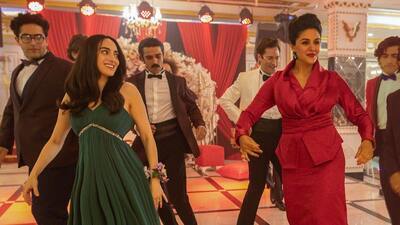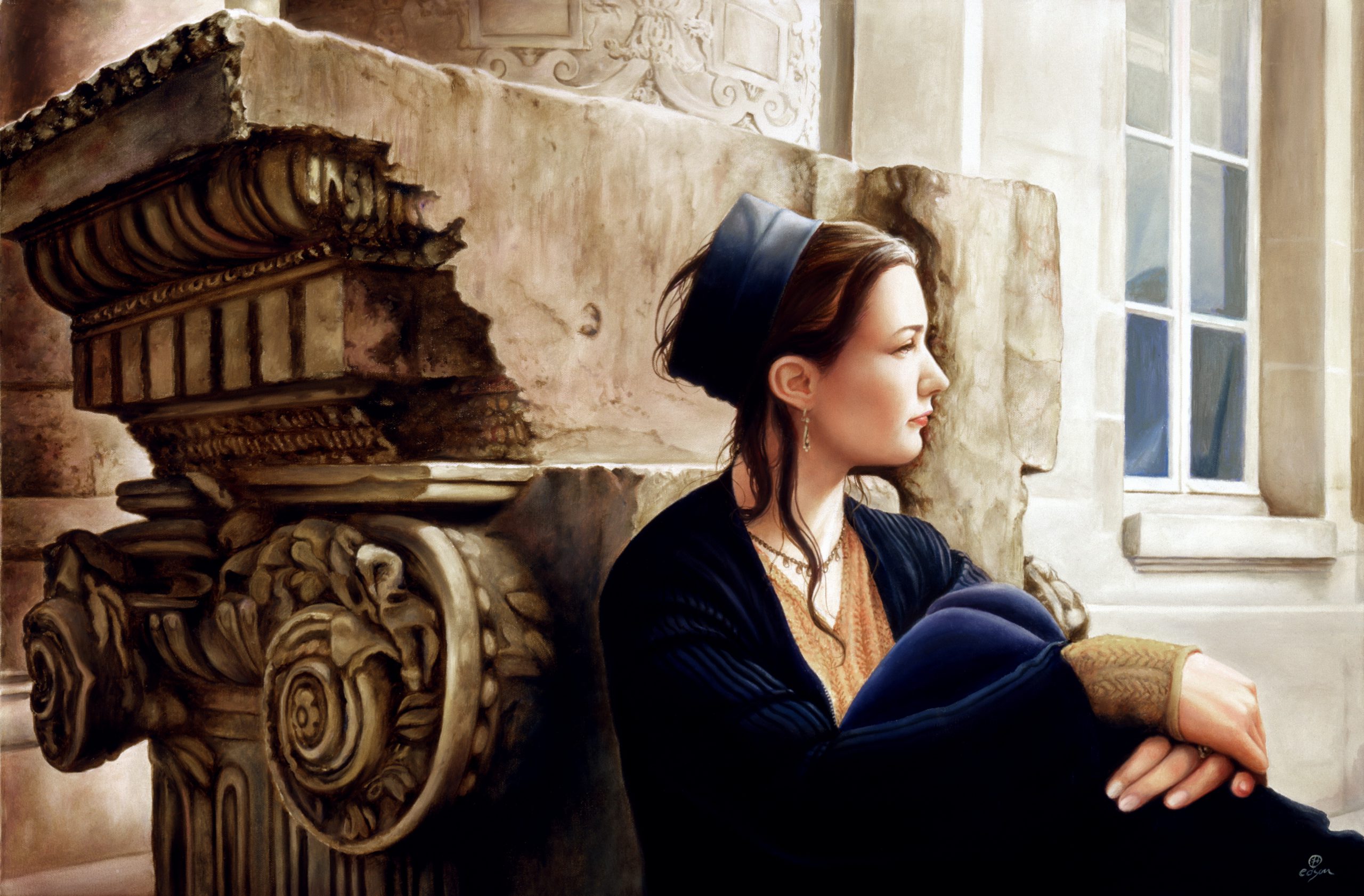
Maryam Kesharvarz’s “The Persian Version” is an ebullient rule-breaker, and it does so in the name of the many women it wants to celebrate. With complete control of its tone and an ambitiousness in telling two parallel life stories, Keshavarz’s latest film (having previously won a festival audience award for “Circumstance“) was one of the most entertaining and moving experiences I’ve had at Sundance this year.
The script essentially fits one personal experience inside the other, and the way it does so is storytelling magic. At first, it’s about rebellious New Yorker Leila (a fiercely funny Layla Mohammadi), who clues us into her life of being a first-generation Iranian-American but also the “f**k up” of her big family. Then, in fourth-wall-breaking sequences straight from “Fleabag,” Leila tells us about her past of mixing American culture with her trips to Iran and how she wants to be the Iranian-American Scorsese. In the movie’s first act, Leila has awkward run-ins with an ex, goes to a Halloween party in a “burka-tini” (a burka on top, bikini on bottom), and hooks up with a guy dressed like Hedwig from the Broadway show. These scenes are quick-witted and bright, but “The Persian Version” has much more to say.
The events in Leila’s life, involving her own surprise and the waning health of her father Ali Reza (Bijan Daneshmand), cause her to think more about the thick skin of her mother, Shirin (a fantastic Niousha Noor). Shirin and Leila have had a tense relationship for a long time, as we see in select looks at the past. Most painfully, Shirin has been cruel to Leila for being a lesbian, and on a previous Thanksgiving, kicked her and her partner out.
But while back home and spending time with her grandmother (Bella Warda), Leila learns about a secret that forced Shirin and Ali Reza to leave Iran. Hungry to work on her next original script (a framing device that conceptually seems overwrought), Leila asks her grandmother to share what happened. “The Persian Version” takes a different course—it becomes about many chapters in Shirin’s life, as a mom in the ’80s who built herself up while raising Leila and her many brothers, and then even earlier back in Shirin growing up as a young bride in 1960s Iran. To call these scenes flashbacks is to minimize how much these passages take over one’s feelings and also how long they run for. “The Persian Version” is Shirin’s story just as much as Leila’s, and it builds a rich understanding of the adversity she faced—she built herself up in America in real estate, while taking care of the family. The tone becomes even more powerful and stark when “The Persian Version” goes back in time, and Kamad Shafieisabet is heartbreaking as young Shirin. It is amazing how much this story fits with the earlier scenes, despite previously being laugh-out-loud snarky just a few scenes ago.
Throughout, Keshavarz’s free-spirited filmmaking gives the movie plenty of style and punchiness. Why not present Shirin in a montage of her hair blowing in the wind, strutting her stuff as we learn about her dominance as a real estate agent in the ’80s? Or why not take us from the pain of Young Shirin to Leila facing her latest episode as the family f**k-up? Seeing all of these colors and passages of their lives creates such a deep understanding for Leila and Shirin, with a storytelling style few directors would dare. It is a dazzling thing to witness, right up to its dedication to Iranian women in the end credits.

“Mutt,” which also premiered in the festival’s US Dramatic Competition section, concerns a similar gap between one person’s vulnerability and another’s understanding. The vulnerability, in this case, is carefully offered by Feña (Lio Mehiel), a trans man living in New York City who has recently transitioned; the understanding is sought from the people who appear back in his life.
The script by debut writer/director Vuk Lungulov-Klotz places Feña on a hectic day full of revealing interactions, often based on how people view Feña. An ex named John (Cole Doman) wraps his head around Feña’s change while getting physically close to him, and at an uncomfortable point, asks to see Feña’s chest. Zoe (Mimi Ryder), Feña’s half-sister, ditches school and commiserates with him about their mom, who kicked Feña out of the house during this transitional period. Later in the night, Feña has to pick up his father from the airport, Pablo (Alejandro Goic), who has not seen Feña since before this change. Among the many stresses of the day, Feña tries to secure a car to make the pick-up in New Jersey possible. “I don’t want him to think I’m a f**k-up,” he confides in someone.
With some mechanical plotting but rich character work, Lungulov-Klotz crafts these conversations to have meaningful dramatic beats, revealing each character’s awkwardness and/or growing empathy. If some of “Mutt” can feel a little lean when creating this portrait, it always has the rich chemistry between Mehiel and others; and the thoughtful framing by cinematographer Matthew Pothier (working with a boxy aspect ratio) always gives viewers something to chew on.
Of the films I’ve seen this year at Sundance, I am most curious to see how “Mutt” will be talked about when it gets to a broader audience. “Mutt” greatly concerns how its character is seen in this world by cisgender people with curiosities and/or biases toward something that has nothing to do with them. And in the process, it has a fair share of moments in which Feña’s interactions are about them explaining himself or putting himself on display (as when Feña takes their shirt off in act one), or the dialogue gearing to some variation of “I’m trans.” Even if this is too on-the-nose for some viewers, “Mutt” clearly comes from an urgency to treat Feña’s experience with a cinematic platform. “Mutt” deserves to be heard.




